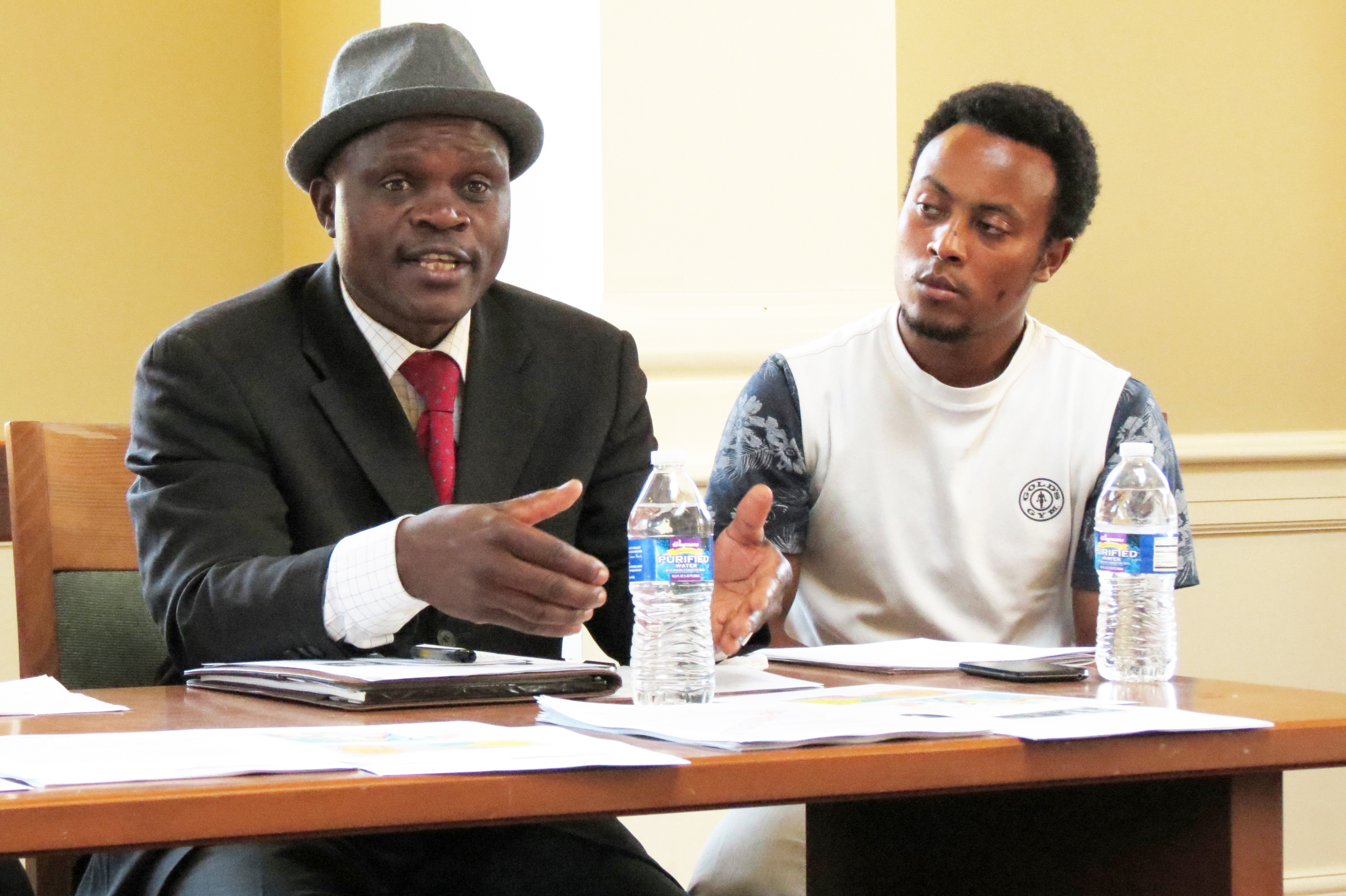By Kyra Mackesy
Correspondent
Three survivors of torture from Ethiopia, Zimbabwe and Cameroon shared their stories of the government imprisonment and torture they each endured after they fought for the rights of their organizations.
Torture, Abolition and Survivors Support Coalition (TASSC), the organization that brought the three individuals to asylum in the U.S., spoke to students at the College on Wednesday, Nov. 4, in the Spiritual Center to explain the group’s missions and share how students can help.

The event highlighted three survivors: Merga Gelgelo, Charles Forchenmbin and Lewis Kunze. The three men are educated professionals who have devoted their lives to fighting for what they believe in, but were ultimately mentally and physically tortured for their actions by their countries’ corrupt governments.
Gelgelo, a 25-year-old from Ethiopia studying to be a biomedical engineer, continued fighting for an organization entitled “Bright Future Organization,” after his father passed away.
“In Ethiopia, if you aren’t serving the interest of the government, you are out of business,” he said.
With Bright Future, Gelgelo was fighting for the people of Ethiopia to receive better rights and benefits from the government.
“I was labeled a terrorist,” Gelgelo said. “In reality I was an activist, yet everyone who fell into the government’s trap believed me to be a terrorist.”
Because of this, he was brutally tortured under the Anti-Terrorism Law.
Forchenmbin, a teacher with a Master’s degree in the English language from Cameroon, experienced a similar run-in with his government. Forchenmbin knew for a long time that he didn’t believe in the infrastructure of his country. But when Cameroon began changing its constitution in 2012, Forchenmbin voiced his concerns.
“In my country, if you raise your head too high, you’ll get executed,” Forchenmbin said.
When he and a group of like-minded people voiced their concerns and opinions through protests to the government of Cameroon, he was arrested, tortured and forced to escape to Nigeria.
“When it comes to your life, you only have one option,” Forchenmbin said. “You must keep living.”
Forchenmbin was forced to leave his life in Cameroon behind and abandon his family.
Kunze, a survivor from Zimbabwe, dedicated his life to fighting for rights for the LGBT community in Zimbabwe by working with a private organization. In his country, he was disgusted by the lack of rights given to the LGBT community and the ways in which the government violated their basic human needs.
“They are polarized there,” he said. “If you talk issues of LGBT, the government takes it as a political issue, not a human rights issue.”
The LGBT organization that Kunze was involved in began working toward changing the bill of rights in Zimbabwe. As their work escalated, the government began raiding the organization’s offices and blackmailing them. Soon enough, they were tortured by government officials — mentally and physically — for their work.
“I very much love (TASSC),” junior international studies major and former TASSC intern Alessandra Testa said. “My experience showed me what human rights are really like overseas.”
TASSC, which is the only organization in the U.S. that offers services to survivors of politically-motivated torture seeking asylum, is working to get the U.S. government to open up to the public on what’s happening overseas.
“We want the U.S. to speak out-right and more specifically about the human rights issues in Africa, and all across foreign countries,” TASSC Advocacy and Outreach Consultant Andrea Barron said.







